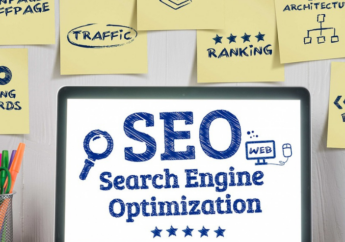4 Tips for Bringing Your Business Online
by Abdul Aziz Mondal Small Business Published on: 03 March 2021 Last Updated on: 27 December 2024

Bringing your business online could be challenging. Then again, seeing that many brick-and-mortar businesses are focusing on building an online presence, this is one move that’s worth considering.
One thing is for sure, migrating online helps you stay profitable during this time of the Covid-19 pandemic. It is cost-effective, easy, and provides massive ROI — so long as you go through it properly.
You still need to know how to make the most out of the tools and platforms within your reach. In that case, here are a few things to keep in mind as you bring your business online.
1. Survey The Market

Before everything else, you need to create a realistic game plan for how you are going to set up shop online and reach out to potential customers. You can start by doing in-depth research on your target market. You will need to zero in on those demographics that need your products or services the most.
One way to go about this is to observe how your competitors handle their online audience. Focus on the platforms that they are using. Do they have a Facebook page? How do they present their offers on their website? Do they use a good mix of videos, blogs, and images?
Apart from that, current market situations should also be included in your game plan. If you are a tech company, you focus your efforts on promoting apps for students who are learning from home at this time.
There is a lot more that you need to focus on when you are developing your online game plan, so take as much time as you need to end up with a strategy that’s bound to succeed.
2. Build an Effective E-commerce Website

As you do your research, you will find that building an e-commerce website is crucial to all your efforts. You will want a platform that serves as an online store where customers can browse through your offers and make a purchase.
At any rate, a lot of thought goes into the process of building a great website. It’s not enough to just have one. Indeed, you need a website that’s easy and straightforward for users, from their initial visit all the way to checkout.
You can start by finding a reliable hosting service that has the features that suit the needs of your business. Whether your business needs to be dedicated or shared hosting, you should settle for a secure and user-friendly hosting service that offers fast loading speeds and large storage volumes. This will all depend on the number of products and the amount of content you will be putting on your website.
Apart from that, you will also need to invest in effective web design. For this, you can follow the principle of “less is better” and avoid cluttering up your website with too much content.
It takes time to create an e-commerce website, but it is totally worth it if it means reaching out to your audience online.
3. Create a Marketing Strategy
Having a website alone doesn’t bring in revenue. You also need a marketing strategy that draws in potential customers and pushes them towards purchasing an offer.
You should start by knowing which platforms work well within your industry. If your business is active in the wine and beverages industry, marketing tips for winery suppliers and producers are available.
Still, regardless of your industry, your marketing strategy should cover multiple channels.
Begin by building a presence on a social media platform that suits your market. If you want to target consumers, look towards Instagram and Facebook for promoting your products and services. In case you are dealing with other businesses and enterprises, focus more on building your presence on LinkedIn. You just need to create and publish relevant content across these platforms.
On top of social media, you also need to make your business visible to people who are looking for your products or services. For that, you need to create a search engine optimization or SEO strategy that targets the words and phrases that your customers search for. You might want to run a keyword analysis on your website and look for keywords that your competitors are also targeting.
In addition to these channels, you can add email and pay-per-click ads to your promotional campaigns, so long as you have enough in your digital marketing budget. Then again, you can still get the best results regardless of how much you spend on your marketing strategy. After all, it’s how you craft your message and deliver value to your audience that matters the most.
4. Build Informative and Relevant Content
As you already know, content is still king. Then again, it’s not enough to be able to publish a blog twice a month or post an infographic on Facebook each week.
In this day and age, people want to know the kind of value they can get when they read an article or watch a five-minute video. For this reason, your content marketing campaign should always look towards relevance.
What issues does your audience care for the most? How do you align your products and services to these issues? Today’s customers are more inquisitive than before. They require more than just tips and tricks. They also need insight and a compelling reason to care.
With that being said, you need to focus on building interest by targeting audience pain points. If you specialize in residential cleaning, should you write about an overused topic like “kitchen cleaning tips” or “how to clean your home after the Holidays”?
You need to be very specific when it comes to creating content that’s meant to attract clients. You can focus on helping them save time or money by hiring a cleaning company for heavy-duty kitchen cleaning.
Don’t settle for anything generic. Add a touch of authenticity and usefulness to every content you produce so you can easily convert visitors into paying customers.
The online world offers numerous opportunities for your business to thrive. You just need to come up with approaches that click with your audience.
Read Also:




































































































